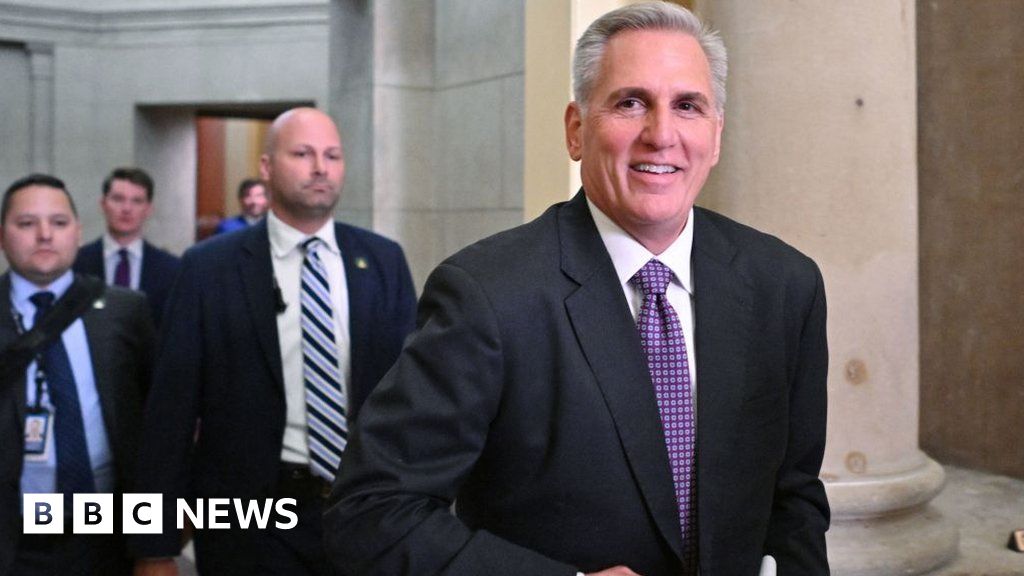Military contractors overcharge the Pentagon on almost everything the Department of Defense buys each year, experts told 60 Minutes over the course of a six-month investigation into price gouging.
In March, Deputy Defense Secretary Kathleen Hicks announced the largest Pentagon budget ever:
$842 billion. Almost half will go to defense contractors.
Retired Air Force Lieutenant General Chris Bogdan, who spent his career overseeing the purchase of some of the country's most critical weapons systems, said there's an inherent conflict between the Pentagon and defense contractors.
"They are companies that have to survive, make profit. The Department of Defense, on the other hand, wants the best weapon systems it can have as quickly as possible and as inexpensively as possible. Those are opposite ends of the spectrum."
Retired Air Force Lieutenant General Chris Bogdan60 MINUTES
Perhaps no one understands the problem better than Shay Assad, now retired after four decades negotiating weapons deals. In the 1990s, he was executive vice president and chief contract negotiator for
defense giant Raytheon. Then he switched sides and rose to become the Defense Department's most senior and awarded contract negotiator. He put his former colleagues in the defense industry under intense scrutiny.
"They need to be held accountable," he said. "No matter who they are, no matter what company it is, they need to be held accountable. And right now that accountability system is broken in the Department of Defense."
It wasn't always like this, he said. The roots of the problem can be traced to 1993, when the Pentagon, looking to reduce costs, urged defense companies to merge and 51 major contractors consolidated to five giants.
"The landscape has totally changed," Assad said. "In the '80s, there was intense competition amongst a number of companies. And so the government had choices. They had leverage. We have limited leverage now."
The problem was compounded in the early 2000s when the Pentagon, in another cost-saving move, cut 130,000 employees whose jobs were to negotiate and oversee defense contracts.
"They were convinced that they could rely on the companies to do what was in the best interests of the war fighters and the taxpayers," Assad said.
The Pentagon granted companies unprecedented leeway to monitor themselves. Instead of saving money, Assad said the price of almost everything began to rise.
In the competitive environment before the companies consolidated, a shoulder-fired stinger missile cost $25,000 in 1991. With Raytheon, Assad's former employer, now the sole supplier, it costs more than $400,000 to replace each missile sent to Ukraine. Even accounting for inflation and some improvements, that's a seven-fold increase.
"For many of these weapons that are
being sent over to Ukraine right now, there's only one supplier. And the companies know it," Assad said.
Army negotiators also caught Raytheon making what they called "unacceptable profits" from the Patriot missile defense system by dramatically exaggerating the cost and hours it took to build the radar and ground equipment.
The company told 60 Minutes it's working to "equitably resolve" the matter. In 2021, CEO Gregory Hayes informed investors that the company would set aside $290 million for probable liability.
A Pentagon study released last month found major contractors flush with "cash beyond their needs for operations or investment." They have tens of billions of excess cash from Pentagon business to hand out to shareholders.
"We have to have a financially healthy defense industrial base. We all want that," Assad said. "But what we don't want to do is get taken advantage of and hoodwinked."
In 2015, Assad ordered a review and army negotiators discovered Lockheed Martin and its subcontractor, Boeing, were grossly overcharging the Pentagon and U.S. allies by hundreds of millions of dollars for the Patriot's PAC-3 missiles.
Pentagon analysts found the total profits approached 40%.
Boeing declined to comment, but Lockheed said: "We negotiate with the government in good faith on all our programs."
After the review, the Pentagon negotiated a new contract with Lockheed, saving American taxpayers $550 million.
F-35 on a runway60 MINUTES
Bogdan pointed to another Lockheed Martin contract with problems. In 2012, he was tapped to take the reins of the troubled F-35 Joint Strike Fighter program; it was seven years behind schedule and $90 billion over the original estimate. Bogdan said the biggest costs are yet to come for support and maintenance, which could end up costing taxpayers $1.3 trillion.
The Pentagon had ceded control of the program to Lockheed Martin. The contractor is delivering the aircraft the Pentagon paid to design and build, but under the contract, Lockheed and its suppliers retained control of the design and repair data, the proprietary information needed to fix and upgrade the plane.
"The weapon system belongs to the department, but the data underlying the design of the airplane does not," Bogdan said.
When a part breaks, the Department of Defense can't fix or replace it itself. That's likely to come from a subcontractor, like TransDigm, a fast-growing company led by Nick Howley. He has made a fortune taking over companies that make spare parts for the military.
Last year, Howley was called before Congress a second time over accusations of price gouging. Assad's review team found the government will pay TransDigm $119 million for parts that should cost $28 million.
TransDigm told 60 Minutes that the company follows the law and charges market prices.
While contract spending is going up, Pentagon oversight is going down because of cuts and attrition. Recently retired auditors Julie Smith and Mark Owen and contracting officer Kathryn Foresman were part of the oversight organizations that were victims of downsizing. They said with less oversight and with Assad gone, the Pentagon is losing the battle to hold down prices.
"We don't have another source for a lot of the spares that they provide right now," Smith said when asked about TransDigm. "They are literally the only game in town in order to make an aircraft fly. So we're at their mercy."
They said it's not a true capitalistic market, but more of a monopoly. It's very concerning for Foresman, who said military contractors are the ones holding the power.
The Department of Defense declined to have anyone speak on camera about price gouging.
"If you're happy with companies gouging you and just looking you right in the eye and say, 'I'm gonna keep gouging you because I know you don't have the guts to do anything about it,' then I guess we should just keep doing what we're doing," Assad said.





